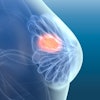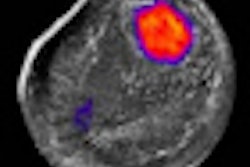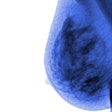Women with dense breasts and no lobular involution (the shrinking of the breast epithelium, associated with a woman's increasing age) are at a higher risk for developing breast cancer than those with nondense breasts and complete involution, according to a study published online October 29 in the Journal of the National Cancer Institute.
Karthik Ghosh, MD, of the Mayo Clinic in Rochester, MN, and colleagues examined the association between these two factors and breast cancer risk in a cohort of 2,666 women with benign breast disease, who were followed for a mean of 13.3 years.
The cohort was selected from a larger Mayo Breast Disease group, which included 9,376 women between the ages of 18 and 85, who had no history of breast cancer and were diagnosed with benign breast disease between 1967 and 1991. Of the 2,666 women included in the study, 172 (6.5%) subsequently developed breast cancer.
Having a combination of dense breasts and no lobular involution was associated with higher breast cancer risk, compared to having nondense or fatty breasts and complete involution, Ghosh's team concluded.
Related Reading
Komen highlights dense breast risk, October 18, 2010
Breast density linked to higher breast cancer risk after DCIS, October 7, 2010
New imaging tools address challenges of dense breast tissue, September 14, 2010
Vitamin D, calcium intake not linked to postmenopausal breast density, August 16, 2010
Researchers take a 3D approach to breast density, July 2, 2010
Copyright © 2010 AuntMinnie.com



















